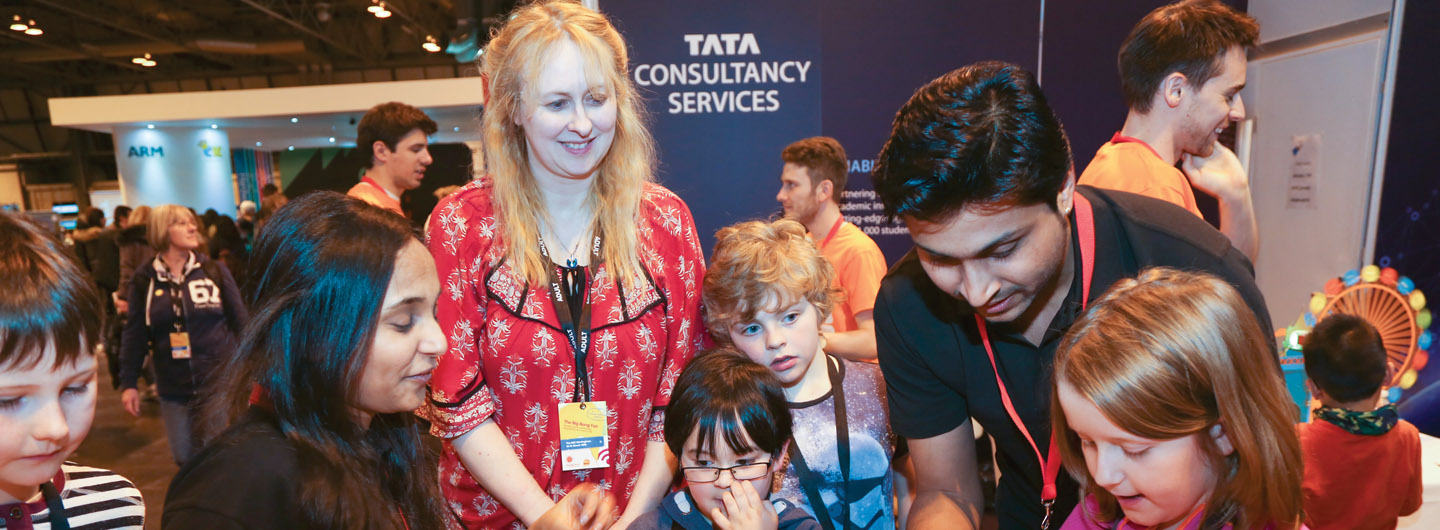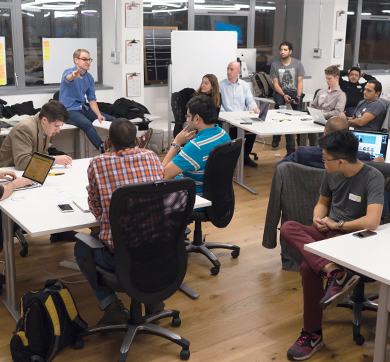May 24, 2018 | 780 words | 3-minute read
As the first GCSE students sit down to take their maths exam today, a survey commissioned by founding partners of the Maths Mission programme, Nesta, the innovation foundation, and Tata, a global enterprise, shows:
- 30 per cent say they love maths and work hard at it, 16% say they love maths and find it easy and 15 per cent say they’re a natural
- Encouragingly 92 per cent believe a person can improve at maths
- 67 per cent say their maths ability is good or very good - and just 7 per cent say their maths ability is poor or very poor
Notably, boys have more confidence in their maths ability:
- One in five boys say that they love maths and find it easy, compared to just over one in 10 girls.
- Nearly twice as many boys as girls claim they are ‘a natural’ at maths (19 per cent vs. 10 per cent).
- Girls were much more likely to admit to trying and failing at maths, with 22 per cent of girls saying that they ‘try at maths but just can’t do it’, compared with just 14 per cent of boys.
Overall this confidence is reassuring but contrasts sharply with some indicators of maths attainment: UK teenagers are ranked just 27th in the OECD's most recent global tests when it comes to their maths skills, a fall from 26th place in 2012.
The jobs market and demand for skills is changing in line with shifting economies and new technologies. 54 per cent of young people say that maths is used in most jobs - from business to building and 40 per cent recognise that the understanding of maths is just as important in the creative industries as it is in maths, science and technology. 39 per cent say an understanding of maths is becoming more and more important as digital technology develops.
Jed Cinnamon, from Nesta’s education team who leads the Maths Mission programme, said, “Today’s secondary school students say they enjoy and even love maths - in stark comparison to the fear/ dread 18 per cent of adults said they had for the subject at school. It’s great to see an indication of positive attitudes to the subject, but we need to explore how this links to attainment and choices to study maths beyond the age of 16.
“The poll indicates a mismatch between passion, performance and the pipeline of maths graduates - and it’s high time to explore new ways to tackle this critical issue. Nesta and Tata’s Maths Mission is testing if the answer could lie outside the formal curriculum, by linking maths to practical problems, parental conversations and even peer support. ”
Marcus du Sautoy OBE FRS, Simonyi Professor for the Public Understanding of Science and Professor of Mathematics at the University of Oxford, says, "It is really encouraging to see that so many students recognise the importance of mathematics to modern life, that mathematics is not only important in technology and science but also to the creative arts. One of the tragedies of our education system is its propensity to teach subjects in isolation.
“Finding ways to bring mathematics out of its silo and celebrate its connections to subjects like history, art, music as well as its importance to the sciences will allow more students the chance to see how relevant this fundamental language is to our modern lives. Mathematics has some great stories to tell but students often get bogged down in the technical grammar of the language. I am very supportive of any initiatives that will help more students to hear the big ideas. Maths is useful but it is also beautiful and full of fascinating intellectual journeys that humans have travelled on throughout history. Let’s not cheat our students out of those exciting ideas. The results of the survey reveal that many students are up for the challenge."
David Landsman, executive director, Tata Limited said, “We all know that the UK underperforms in maths compared with some of our most important competitors. But the interesting findings of this survey show that the causes are complex. Young people are enthusiastic and confident about maths, and there are many excellent teachers. Business can play an important role in linking what young people learn at school with what they’ll need in the world of work. We at Tata know that maths is essential to all the things we do, so we’re proud to be working with NESTA on imaginative ways to help improve the UK’s maths performance.”
Nesta and Tata will be hosting an event at Hay Festival on Saturday, June 2, 2018 to discuss some of these issues and to showcase new maths teaching concepts.













